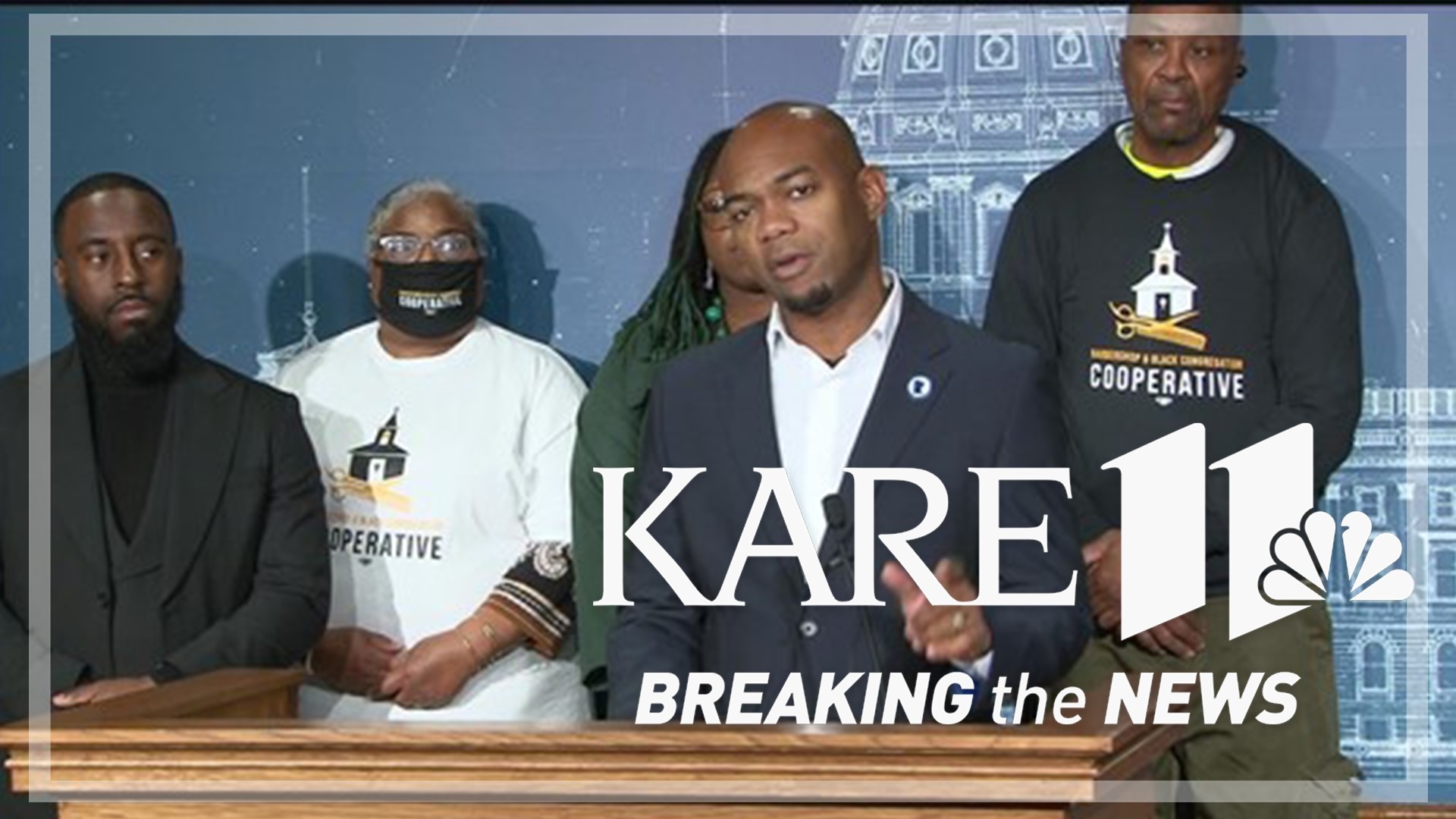ST PAUL, Minn. — Lawmakers, clergy and other civil rights advocates Wednesday applauded efforts by a state board to update licensing standards for police in Minnesota.
The Peace Officer Standards and Training Board, or POST, is in the process of amending the rules for those seeking a license to be a law enforcement officer in the state. Among other things, it would bar prospective officers from belonging to or supporting white supremacists, hate, or extremist groups.
"This is a value statement, and the values are that every Minnesotan, no matter what zip code you're born in, no matter what your circumstances, you have a right to be safe in your community," Rep. Cedrick Frazier, a New Hope Democrat who has led police reform efforts at the State Capitol, told reporters.
"The POST Board has stepped into this moment with appointments by Governor Walz of new members on that board, community members that represent what Minnesota looks like and what Minnesota values are."
Rep. Carlos Mariani of St. Paul, who chairs the House Public Safety Committee, applauded POST Chair Kelly McCarthy and her fellow members for taking steps to bring standards into the current era.
"There is no greater threat to our constitutional rights in our nation right now than the resurgence of racial supremacy groups," said Rep. Mariani, who's retiring after three decades in the legislature.
He pointed out that Minnesota was the first state in the nation to establish a police officer licensing board. Mariani said lawmakers who created the POST in 1977 expected the board would set up the rules getting into law enforcement.
"The POST was endowed with the authority to generate and implement rules. It has authority by legislative action."
In the aftermath of George Floyd's murder in police custody in 2020, lawmakers passed a series of reforms that included adding more citizen members to the POST. The current rulemaking process will reach another milestone Friday when the board votes on the latest amendments.
"Every officer that wields the power of a badge, or gun, or squad car ought to be able to unequivocally declare that every Minnesotan deserves the right to live, breath and flourish in our communities," Rev. Elijah McDavid III told reporters.
The state's two largest statewide law enforcement organizations have cautioned that the changes may not hold up in court as currently written.
Law Enforcement Labor Services and the Minnesota Police and Peace Officers Association issued a joint letter to the POST, asserting that state law leaves the job of policing the police to the local units of government that employ the officers. And, they argue, disciplinary actions must be consistent with labor contracts between local governmental entities and police unions.
The MPPOA and LELS letter also takes issue with some of the changes to the candidate background check criteria.
One would ask screeners to check for past "discriminatory conduct" by the officer candidate. The law enforcement groups say there aren't objective standards for judging whether past actions actually constitute "discriminatory conduct" by the person in question.
The proposed rule changes would also allow screeners to ask if an officer had ever been subject to a Brady/Giglio disclosure in a trial. Those disclosures are based on the idea the defense has the right to know if there's anything in the officer's past that would place his or her courtroom testimony in a different light.
The MPPOA and LELS say just simply knowing an officer's testimony prompted a Brady/Giglio disclosure in the past doesn't paint a full picture of why the officer's word was called into question. The POST Board added a line to the proposed new rules stating there's nothing preventing an officer candidate from providing more context.
Ultimately an administrative law judge will be asked to issue an opinion about whether the proposed rule changes meet the legal standard of being needed and reasonable.
"We’re trying to bring our practice in line with public expectations, and the public expects the people who enforce the law also follow it," POST Chair Kelly McCarthy, who serves as the police chief of Mendota Heights, told KARE Dec. 1.
Sponsors of the State Capitol media event Wednesday had advertised that Minneapolis Police Chief Brian O'Hara would be there. He was invited but declined to participate.
O'Hara's staff said the newly-minted chief supports the direction the POST Board is headed in, but didn't want to create the appearance he was trying to unduly influence the board's deliberations by appearing at the press conference.
Minneapolis City Council Member Robin Wonsley appeared at the event, to say the POST Board is listening to the voices calling for changes in law enforcement.
"Years and years of struggle and protest are moving the needle! The fact that the POST board is even passed this policy is a sign of change."

